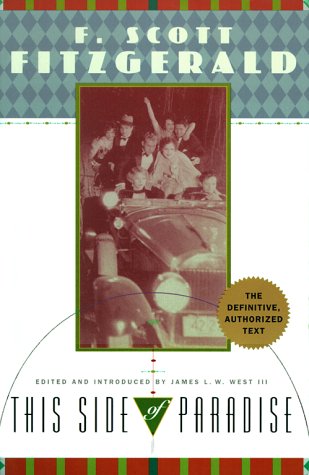
The Beautiful and Damned
Book Description
Amidst the glittering opulence of the Jazz Age, two passionate souls spiral into a whirlwind of love and despair. Anthony and Gloria emerge as the epitome of glamor, basking in the excesses of high society while their dreams of greatness clash with the harsh realities of life. As ambition turns to greed and devotion starts to decay, their once-beautiful romance becomes a haunting tragedy. Tensions flare and choices become dire as they navigate fame, fortune, and their own demons. Will their desires lead them to brilliance or ruin? In a world where everything glitters, can love truly survive the tempest?
Quick Book Summary
"The Beautiful and Damned" by F. Scott Fitzgerald is a poignant exploration of the Jazz Age’s glitz and the destructive pursuit of pleasure. The novel follows Anthony Patch and his glamorous wife Gloria Gilbert as they drift through the highs of New York City’s elite social scene. Desperate for inheritance and meaning, their marriage is marked by lavish parties, idle dreams, and mounting disappointment. As Anthony’s hopes for fortune dim and Gloria’s beauty wanes, their love is tested against personal flaws, societal pressures, and the slow erosion of their ambitions. Through vibrant prose, Fitzgerald exposes the fleeting nature of youth and wealth, ultimately tracing the couple’s descent from grandeur to emptiness, capturing the moral and emotional bankruptcy beneath a dazzling exterior.
Summary of Key Ideas
Table of Contents
The Illusion of Wealth and Inheritance
Anthony Patch, a Harvard graduate and grandson of a wealthy tycoon, lives in anticipation of inheriting his grandfather’s fortune. Disinterested in serious work, Anthony spends his days cultivating an image of sophistication, while exploring New York’s social and intellectual circles. His intellectual ambitions are often hollow, and his sense of purpose is dulled by a life of privilege without responsibility, setting the stage for his later struggles.
The Corrosive Effects of Idleness
Anthony meets and becomes enamored with Gloria Gilbert, a striking beauty drawn to the pleasures and liberties of the Jazz Age. Their courtship is passionate and glamorous, bringing them into the orbit of Manhattan’s elite. Marriage promises fulfillment and shared dreams, but beneath the stylish veneer, both harbor unrealistic expectations and a growing dependency on wealth they have yet to acquire.
Love, Disillusionment, and Moral Decay
As the years pass, Anthony and Gloria’s hopes revolve around Anthony’s inheritance, fueling their extravagant lifestyle and reluctance to settle into productive roles. Their refusal to confront reality breeds discontent. Friction mounts in their marriage—dissatisfaction festers, jealousy emerges, and the pair’s devotion erodes. Both struggle with alcoholism and escapism, causing emotional and financial instability.
The Influence of Society and the Jazz Age
Societal pressures and the frenetic energy of the 1920s intensify the couple’s decline. The book offers a biting critique of the Jazz Age’s excess and the emptiness of its pursuits, illustrating how Anthony and Gloria’s pursuit of happiness through pleasure and status leaves them spiritually bankrupt. Their isolation grows as friends drift away and opportunities dwindle. Attempts to reclaim fortune or happiness are thwarted by their own flaws and external circumstances.
Decline and the Loss of Identity
Ultimately, Anthony and Gloria’s lives unravel both materially and emotionally. When Anthony finally receives his inheritance, the long-desired wealth arrives too late to rescue their relationship or restore their lost dreams. The novel closes on a sense of defeat and irony: the Patches have gained the riches they sought, but lost themselves along the way, embodying the tragic cost of chasing beauty and grandeur at the expense of substance and self-knowledge.
Download This Summary
Get a free PDF of this summary instantly — no email required.





